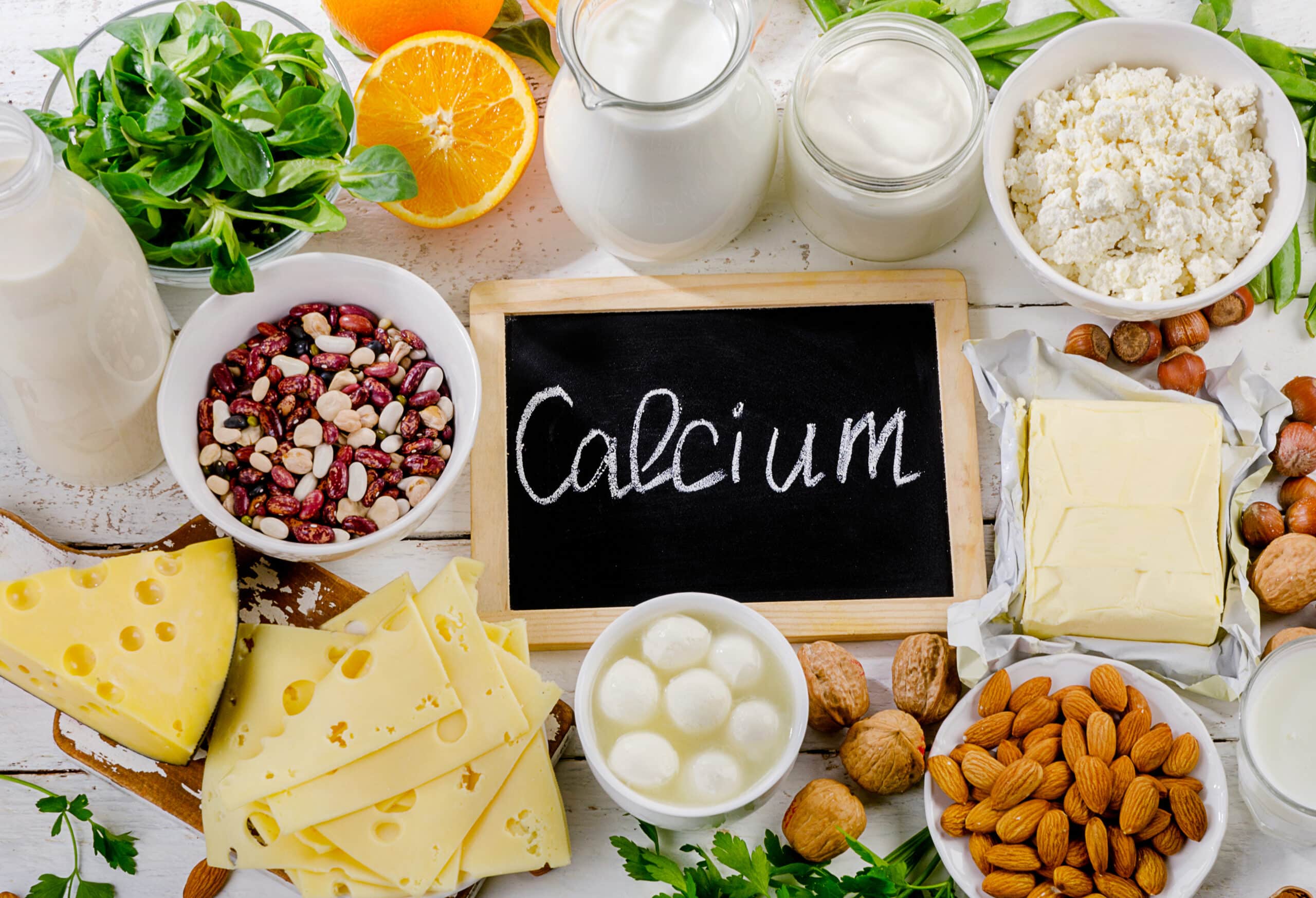While high amounts of dietary calcium are considered safe and may work to prevent vascular disease, the safety of calcium supplements has been contested in recent years – particularly for aging women. Many adults are unaware of the potential adverse effects of excessive calcium doses derived from supplementation – including neurological and cardiovascular consequences – which may greatly outweigh any small benefits. Recent studies suggest that excess calcium consumption may increase the risks of developing dementia, kidney stones, and cardiovascular diseases, while not having as much of an impact on bone health as previously thought.
Current Calcium Recommendations
Although the National Institutes of Health recommend a minimum daily required calcium intake of 1,000 mg for women under the age of 50 and 1,200 mg for women over 50, many experts disagree. Dr. Walter Willett, chair of the Department of Nutrition at the Harvard T.H. Chan School of Public Health believes half of that amount may be sufficient. As both the World Health Organization and the United Kingdom recommend significantly lower amounts of calcium – 500 mg and 700 mg, respectively – the current American guidelines may require re-evaluation. Rather than supporting the health of older women, national calcium recommendations may be causing many individuals to consume excessive amounts of calcium, putting them at risk for a host of health repercussions, including dementia, heart attack, and kidney stones.
Calcium Supplements and Increased Dementia Risk
Previous research has uncovered a link between calcium supplementation and increased risk of developing dementia in elderly women with cerebrovascular disease. A study from researchers at the University of Gothenburg in Sweden evaluated the effects of calcium supplements on the neurodegenerative disease, finding that women who were treated with calcium experienced a doubled risk of developing dementia than women who did not take supplements. However, researchers found that the connection only persisted in women who had cerebrovascular disease.
Participants with a history of stroke faced a nearly seven times higher risk of dementia when taking calcium supplements than those with no history of stroke. Similarly, women with white matter lesions were three times as likely to develop dementia if they took calcium supplements, compared with those who had white matter lesions but did not ingest supplements. On the other hand, no increased risk was found in women without a history of stroke or white matter lesions. While the study’s findings underscore the potentially noxious effects of calcium supplements, the study was observational and not a randomized control trial implicating that further research is needed to conclusively determine the connection between the two.
Increased Risk of Heart Attacks
Prior research has found a potential association between calcium supplements and an increased risk for heart attack events. In a randomized study from New Zealand, investigators reported a nearly doubled risk of heart attack events in women who took 1,000 mg of a calcium supplement daily compared with those who received a placebo. Additional research has further confirmed calcium supplementation as a strong risk factor for heart attacks, especially in older women. However, other studies have found that the supplements do not pose a threat to cardiovascular health prompting the need for further investigation into their safety.
Kidney Stone Formation and Recurrence
Past studies have linked excess calcium consumption from supplements to the increased risk of kidney stone formation and recurrence. The Woman’s Health Initiative trial found an increased risk of developing kidney stones in women taking a calcium-vitamin D combination supplement than in those who received a placebo pill. While high doses of dietary calcium may be beneficial to kidney health – preventing kidney stones – excess amounts derived from supplements may instead promote kidney stone formation by increasing the amount of calcium eliminated in the urine.
After several decades of research, investigators have come to the conclusion that a calcium-vitamin D combination supplement does not decrease the risk of hip fractures in postmenopausal women, implicating that the minor bone density benefits associated with calcium supplementation do not outweigh the potential health risks. Although overconsumption of these supplements have been deemed ineffective and potentially even unsafe, consuming adequate dietary calcium – such as that derived from collard greens, soybeans, salmon, dairy, and fortified products – may be enough to reap bone health benefits. According to Dr. Willett, an intake of 500-700 mg of calcium per day is sufficient and easily attainable through diet; having one to two servings of dairy products daily may satisfy calcium requirements.




